A water heater is an essential appliance in any household, providing hot water for everything from bathing to cooking and cleaning. However, like any device, it has a limited lifespan and can develop issues over time. Recognizing the signs of a failing water heater early can help you avoid unexpected breakdowns, costly repairs, and the inconvenience of being without hot water.
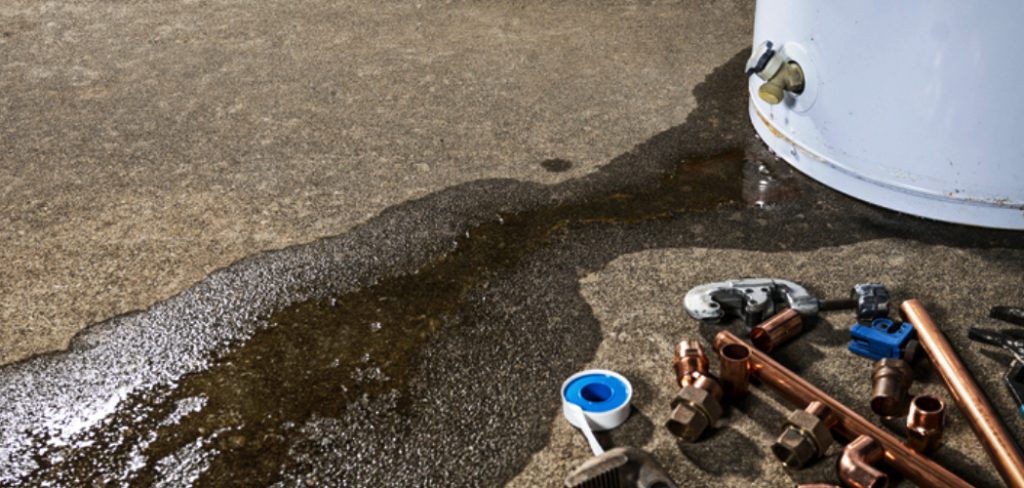
This guide on how to tell if water heater is bad will walk you through the common symptoms of a bad water heater and what steps you can take to address the problem.
Why Water Heaters Go Bad?
Water heaters can fail for a variety of reasons, often due to wear and tear over time. One common cause is sediment buildup in the tank, which occurs as minerals in the water settle at the bottom. This sediment reduces efficiency and can lead to overheating and eventual damage to the tank. Corrosion is another frequent issue, as the water inside can gradually cause the tank’s inner lining to rust, especially if the anode rod is not regularly replaced.
Additionally, general wear on components like heating elements, thermostats, or valves can result in decreased performance. Improper maintenance, such as neglecting regular flushing or inspections, can also significantly shorten a water heater’s lifespan. External factors, like high water pressure or inconsistent water quality, may further contribute to a water heater’s decline.
Needed Materials
To properly assess and determine if your water heater is bad, you will need the following materials:
A Flashlight to Inspect the Tank’s Interior.
A Multimeter to Test Electrical Components.
Protective Gear Such as Gloves and Goggles.
8 Step-by-step Guidelines on How to Tell if Water Heater is Bad
Step 1: Check for Leaks
The first step in determining if your water heater is bad is to inspect the unit for any leaks. Using a flashlight, carefully examine the area around the base of the water heater for puddles of water or signs of moisture. Leaks may indicate a crack in the tank or damaged plumbing connections. If the water is pooling directly under the tank, it is likely that the tank itself is compromised and may need to be replaced.
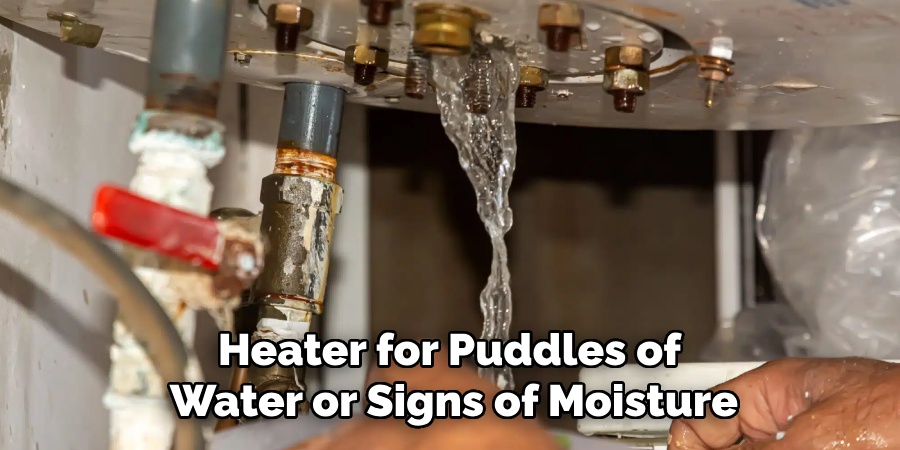
Be sure to also check the temperature and pressure relief (T&P) valve, as malfunctioning valves can sometimes cause water to escape. Addressing leaks promptly is crucial to prevent further damage and potential water waste.
Step 2: Test the Water Temperature
Next, check the water temperature. If you notice a decrease in hot water or only lukewarm temperatures, this may indicate an issue with your water heater’s heating elements. Additionally, inconsistent hot water can be a sign of sediment buildup or a malfunctioning thermostat.
It is essential to note the temperature of the water as it exits your fixtures, as this can help determine if the issue stems from the water heater or elsewhere in your plumbing system.
Step 3: Listen for Strange Noises
As you run hot water, listen for any unusual noises coming from your water heater. A banging, rumbling, or popping sound may indicate sediment buildup inside the tank.
This noise occurs when the heat at the bottom of the tank causes trapped air bubbles to expand and escape through the sediment layer. If left unaddressed, this sediment can lead to reduced efficiency and potential damage to the tank.
Step 4: Check Water Pressure
Low water pressure can be another indicator of a problem with your water heater. Begin by testing the water pressure at your faucets and showers. If the pressure seems consistently weak when using hot water, it could be due to sediment buildup restricting the flow inside the tank or the pipes connected to the heater. Blockages in the water lines or a partially closed shut-off valve can also contribute to this issue.
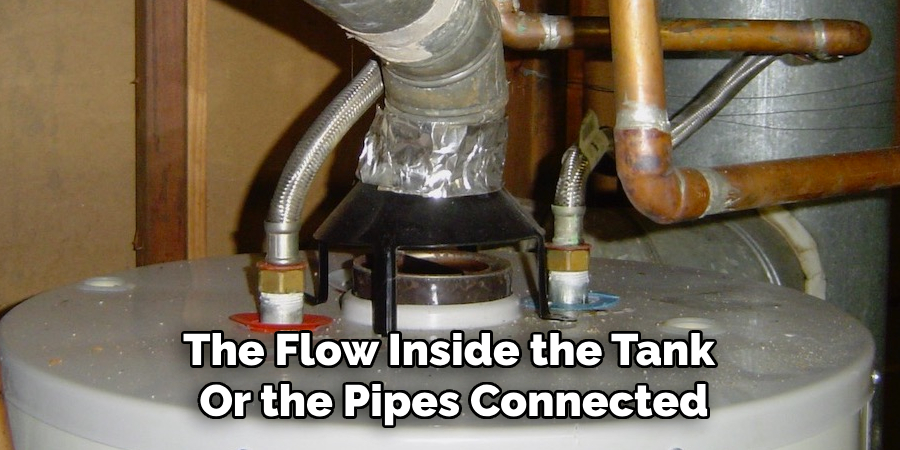
Additionally, inspect your pressure relief valve, as a malfunction can lead to irregular pressure levels. If water pressure is only low for hot water and not cold, the problem is likely rooted in the water heater itself. Addressing pressure issues promptly can prevent further wear on your water heater and plumbing system.
Step 5: Smell for Signs of Gas
If your water heater is powered by gas, it is essential to be aware of any potential gas leaks. The most obvious sign of a gas leak is the smell, which can resemble rotten eggs. If you notice this odor near your water heater, immediately turn off the gas supply and contact a professional technician for further inspection.
Other signs of gas leaks include hissing sounds or bubbles in standing water around the tank’s base. Regularly checking for these indicators can help ensure the safety of your household.
Step 6: Test Electrical Components
For electric water heaters, testing the electrical components can help determine if there are any issues with the heating elements or thermostats. Using a multimeter, test for continuity and proper voltage output from each electrical component. If there is no continuity or low voltage readings, it may be time to replace the faulty part.
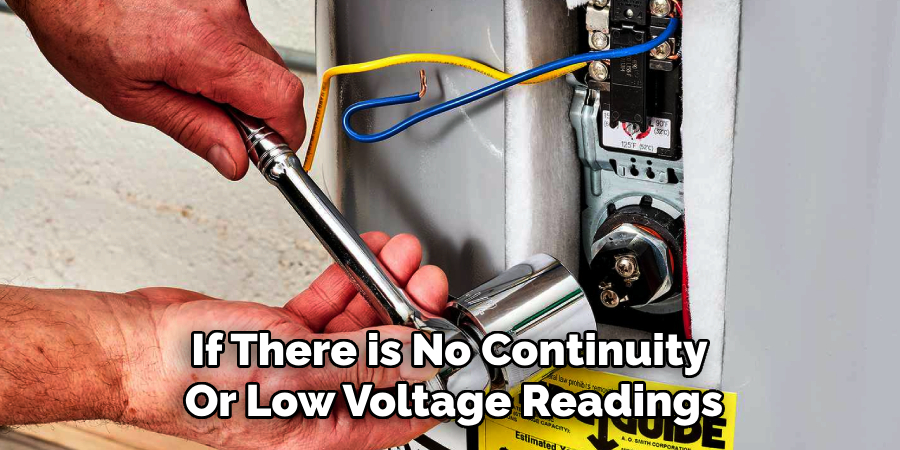
The heating elements in a water heater can also wear out over time, resulting in decreased performance. Testing them regularly and replacing them as needed can help prolong the lifespan of your water heater.
Step 7: Look for Rust or Corrosion
Rust or corrosion on the exterior or interior of your water heater is a definite sign of deterioration. Inspect both the tank and pipes connecting to the unit for any signs of rust or discoloration. If you notice significant rusting, it may be time to replace your water heater before it fails completely.
To prevent corrosion, it is essential to regularly flush and maintain your water heater and replace the anode rod every few years. The anode rod is a sacrificial element that attracts corrosive elements and protects the tank’s inner lining.
Step 8: Consider Age and Past Maintenance
Lastly, consider the age of your water heater and its history of maintenance. A typical lifespan for a water heater is around 10-15 years, depending on usage and proper maintenance. If your unit is reaching or has exceeded this timeframe, it may be time to start considering a replacement.
Regularly maintaining your water heater by flushing, inspecting, and replacing necessary components can also greatly extend its lifespan. Neglecting proper maintenance can cause premature failure and lead to costly repairs or replacements.
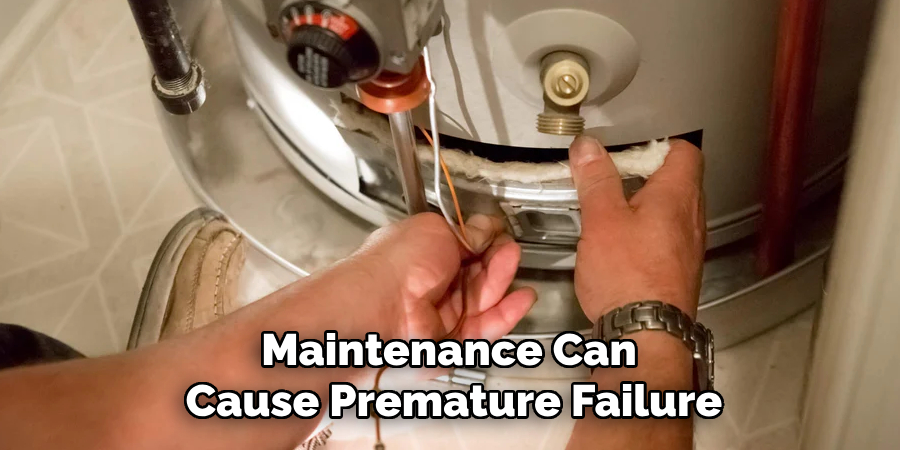
Following these guidelines on how to tell if water heater is bad and regularly checking your water heater can help you identify potential issues before they become major problems. If, after following these steps, you determine that your water heater is indeed bad, it is best to contact a professional plumber for further assistance in repairing or replacing the unit. Remember, addressing issues promptly can save you time, money, and potential water damage in the long run.
Do You Need Support From Professionals?
While many water heater issues can be identified and addressed through regular maintenance and inspections, there are times when professional support is necessary. If you encounter persistent problems such as consistent leaks, noticeable rust inside your water supply, or a complete lack of hot water, it may indicate a more serious issue that requires expert attention. Additionally, if you are unsure about how to safely handle gas or electrical components, it is always advisable to call a licensed plumber or technician.
Professionals have the tools and expertise needed to accurately diagnose and resolve complex problems, ensuring your water heater operates effectively and safely. They can also provide valuable advice on whether to repair or replace your unit based on its condition and age. Investing in professional help can save you time, reduce the risk of further damage, and prevent costly repairs in the future.
Frequently Asked Questions
Q: How Often Should I Check My Water Heater?
A: It is recommended to check your water heater at least once a year for potential issues. However, it is always beneficial to inspect it more frequently, especially if you notice any changes in its performance or detect unusual noises or smells. Regular maintenance can greatly extend the lifespan of your water heater and prevent major problems from arising.
Q: How Do I Know If My Water Heater Needs to Be Replaced?
A: There are several signs that indicate it may be time to replace your water heater. These include age, past maintenance, consistent leaks or rusting, and a significant decrease in efficiency. It is best to consult with a professional plumber for an accurate assessment of whether your water heater needs replacement or repair.
Q: Can I Maintain My Water Heater Myself?
A: While some maintenance tasks such as flushing the tank, can be done by homeowners, it is always recommended to seek professional assistance for more complex issues or if you are unsure about how to handle gas or electrical components. Regular maintenance by a licensed plumber can help prevent major issues and ensure your water heater operates efficiently.
Q: How Can I Prolong the Lifespan of My Water Heater?
A: Proper and regular maintenance is key to extending the lifespan of your water heater. This includes flushing the tank, replacing the anode rod every few years, testing electrical components, and addressing any issues promptly. It is also important to use caution when adjusting temperature settings or handling gas or electrical components, as improper handling can cause damage. Remember to consult a professional for assistance if needed.
Conclusion
By following these eight steps on how to tell if water heater is bad, you can determine if your water heater is in need of repair or replacement. Regularly inspecting and maintaining your water heater can help prevent major issues and prolong its lifespan, saving you time and money in the long run. If you suspect any problems with your water heater, it is best to contact a professional plumber for further assistance.
Remember to also practice safety measures when working with gas or electricity and always consult a professional for any repairs or replacements. So, keep an eye out for these signs and take proactive steps to ensure the proper functioning of your water heating system. Happy hot showering!
About the Author
Adrian Green is a passionate woodworking enthusiast who has dedicated his life to the craft of woodworking. From his early days working alongside his father in the family woodworking shop, Adrian has honed his skills and developed a deep love for creating beautiful, functional pieces with his hands. As the voice behind The Woodenify Blog, he shares his knowledge, tips, and inspiration with fellow woodworkers of all skill levels, helping them build confidence in their abilities while learning new techniques.
Professional Focus
- Specializes in DIY woodworking projects, from furniture making to home décor.
- Provides step-by-step guides, tips, and practical tutorials for woodworkers at any skill level.
- Focused on empowering readers with confidence and knowledge through easy-to-follow instructions and hands-on techniques.
- Passionate about building a community where makers can share, learn, and grow together in the world of woodworking.
Education History
University of Craft and Design – Bachelor of Fine Arts (BFA) in Woodworking and Furniture Design
Woodworking Apprenticeships – Gained extensive hands-on experience through various workshops and mentorships with seasoned craftsmen, refining carpentry and furniture-making skills.
Expertise
- DIY woodworking, carpentry, furniture making, and home décor projects.
- Creating clear, accessible tutorials and guides for beginner to advanced woodworkers.
- Helping readers experience the satisfaction and fulfillment of turning raw materials into stunning finished products.
